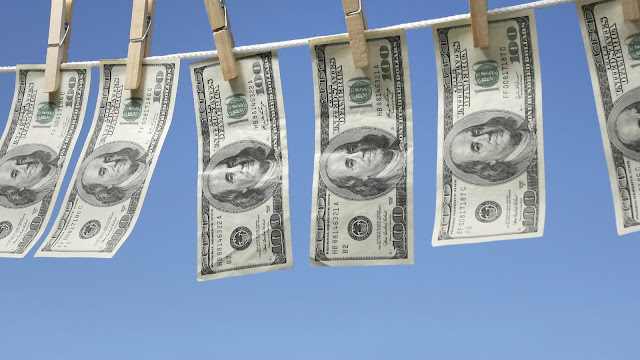What is Money Laundering
Money laundering is the process of creating the appearance that large amounts of money obtained from criminal activity, such as drug trafficking or terrorist activity, originated from a legitimate source. The money from the illicit activity is considered dirty, and the process "launders" the money to make it look clean
How is the offence of money laundering committed?
- The necessary act of laundering itself i.e. the provision of financial services; and
- A requisite degree of knowledge or suspicion (either subjective or objective) relating to the source of the funds or the conduct of a client.
The act of laundering is committed in circumstances where a person is engaged in an arrangement (i.e. by providing a service or product) and that arrangement involves the proceeds of crime. These arrangements include a wide variety of business relationships e.g. banking, fiduciary and investment management.
The requisite degree of knowledge or suspicion will depend upon the specific offence but will usually be present where the person providing the arrangement, service or product knows, suspects or has reasonable grounds to suspect that the property involved in the arrangement represents the proceeds of crime. In some cases the offence may also be committed where a person knows or suspects that the person with whom he or she is dealing is engaged in or has benefited from criminal conduct.
Why is money laundering illegal?
The objective of the criminalisation of money laundering is to take the profit out of crime. The rationale for the creation of the offence is that it is wrong for individuals and organisations to assist criminals to benefit from the proceeds of their criminal activity or to facilitate the commission of such crimes by providing financial services to them.
How Money Laundering Works
In October 2005, U.S. congressman Tom DeLay was indicted on money laundering charges, forcing him to step down as House Majority Leader. Money laundering is a serious charge -- in 2001, U.S. prosecutors obtained almost 900 money-laundering convictions with an average prison sentence of six years. The rise of global financial markets makes money laundering easier than ever -- countries with bank-secrecy laws are directly connected to countries with bank-reporting laws, making it possible to anonymously deposit "dirty" money in one country and then have it transferred to any other country for use.
Money laundering happens in almost every country in the world, and a single scheme typically involves transferring money through several countries in order to obscure its origins. In this article, we'll learn exactly what money laundering is and why it's necessary, who launders money and how they do it and what steps the authorities are taking to try to foil money-laundering operations.
Money laundering Latest News
Senator Warren says U.S. needs to 'Again think' money laundering laws
Democratic Senator Elizabeth Warren said on Tuesday the United States needed to review outdated laws for combating money laundering which are creating an undue compliance burden for small and community banks.
During a Congressional hearing on Tuesday, Warren said she supported more stringent company ownership disclosure requirements and changing the threshold for reporting suspicious transactions in order to make life easier for small lenders and law enforcement.
“Money laundering is a massive problem ... so everything we can do to crack down on that is good and that’s what we should be doing,” the Massachusetts lawmaker told the Senate Banking Committee. “But it seems to me we need to rethink a lot of our money laundering laws some of which ... were written back in the 1970s and are badly out of date.”
The Committee hearing was the first of two to be held on U.S. anti money-laundering laws (AML), most of which were written in the 1970s and are out of step with the current financial landscape.
Much of the burden for identifying the proceeds of crimes such as tax evasion and human trafficking falls on the banking industry, which is required to monitor financial flows and produce millions of reports flagging suspicious transactions to the authorities.
U.S. watchdogs have dished out more than $16 billion in fines for AML compliance failings since the end of 2009, while banks globally spent an estimated $12 billion on AML compliance programs in 2016, according to data compiled by consultancy Quinlan & Associates.
Warren and others on the Committee agreed that updating broader money laundering laws, that would apply to bank clients and other intermediaries, could help make AML laws more effective while reducing the burden on banks.
Democratic Senator Mark Warner also called on the Committee to take a closer look at the implications of the rise of anonymous digital currencies such as bitcoin for combating money laundering, noting lawmakers needed to “get ahead” of the issue.

No comments:
Post a Comment